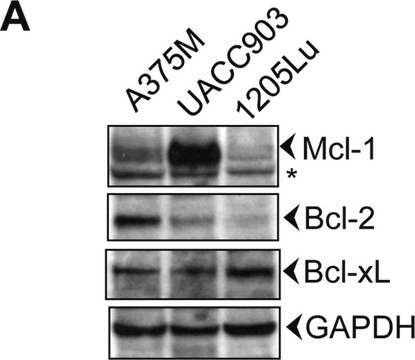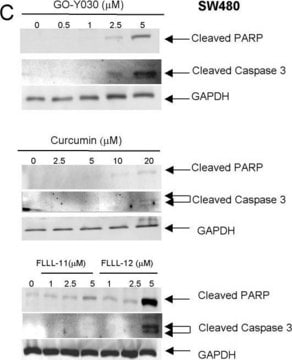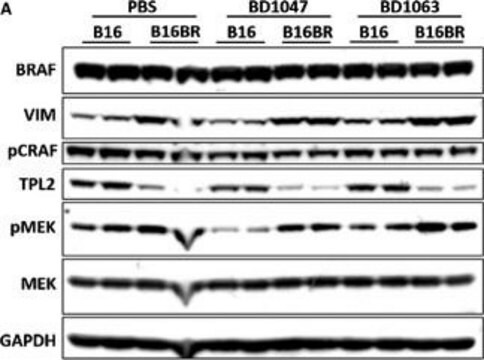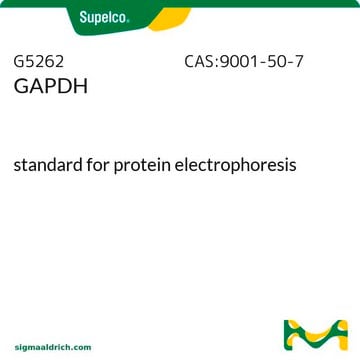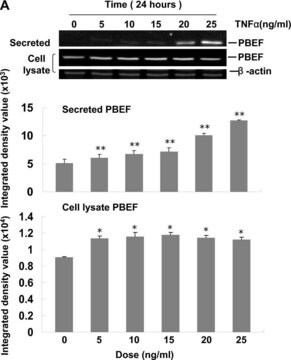SAB5600208
Anti-GAPDH Antibody
monoclonal, RM114
Synonym(s):
Aging-associated gene 9 protein, Glyceraldehyde 3 phosphate dehydrogenase
About This Item
Recommended Products
product name
Anti-GAPDH antibody, Rabbit monoclonal, recombinant, expressed in HEK 293 cells, clone RM114, purified immunoglobulin
recombinant
expressed in HEK 293 cells
antibody form
purified immunoglobulin
antibody product type
primary antibodies
clone
RM114, monoclonal
recombinant monoclonal
form
buffered aqueous glycerol solution
species reactivity
all
technique(s)
ChIP: 1:200
ELISA: suitable (assay dependent concentration)
flow cytometry: suitable (assay dependent concentration)
immunocytochemistry: 1:200
immunohistochemistry: 1:200
immunoprecipitation (IP): 1:200
western blot: 1:1000
isotype
IgG
NCBI accession no.
UniProt accession no.
shipped in
wet ice
storage temp.
−20°C
target post-translational modification
unmodified
Gene Information
human ... GAPDH(2597)
Specificity
Immunogen
Physical form
Disclaimer
Not finding the right product?
Try our Product Selector Tool.
Storage Class Code
10 - Combustible liquids
WGK
WGK 2
Flash Point(F)
Not applicable
Flash Point(C)
Not applicable
Regulatory Listings
Regulatory Listings are mainly provided for chemical products. Only limited information can be provided here for non-chemical products. No entry means none of the components are listed. It is the user’s obligation to ensure the safe and legal use of the product.
JAN Code
SAB5600208-100UL:
Certificates of Analysis (COA)
Search for Certificates of Analysis (COA) by entering the products Lot/Batch Number. Lot and Batch Numbers can be found on a product’s label following the words ‘Lot’ or ‘Batch’.
Already Own This Product?
Find documentation for the products that you have recently purchased in the Document Library.
Customers Also Viewed
Our team of scientists has experience in all areas of research including Life Science, Material Science, Chemical Synthesis, Chromatography, Analytical and many others.
Contact Technical Service